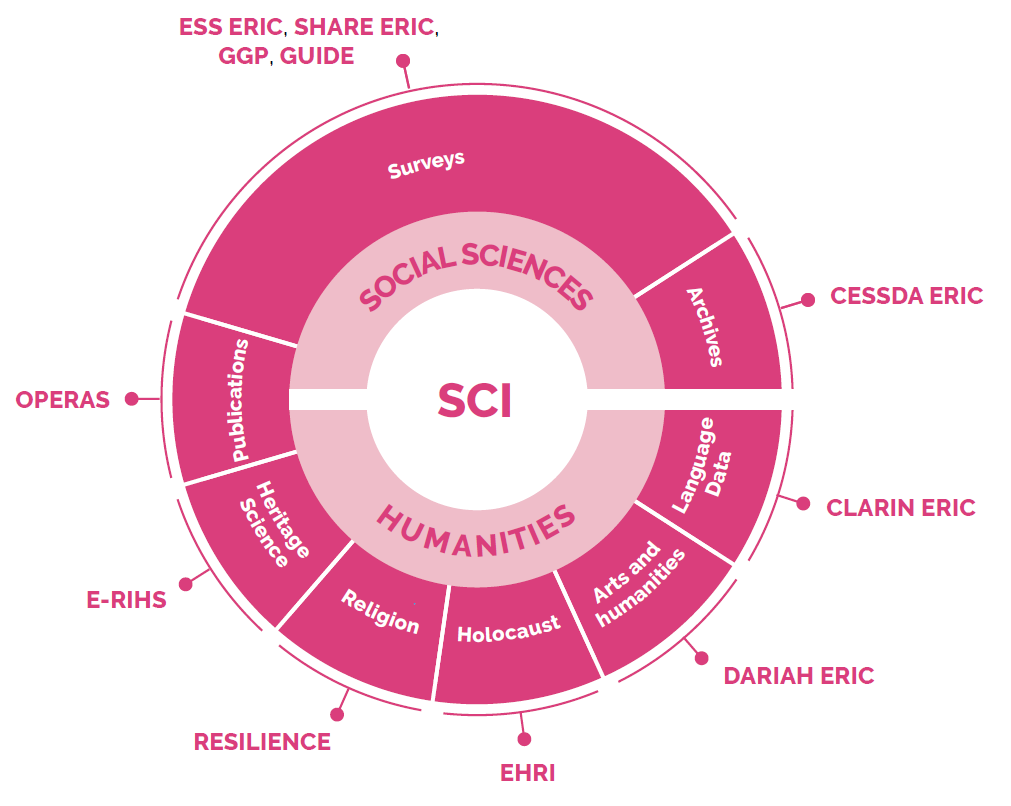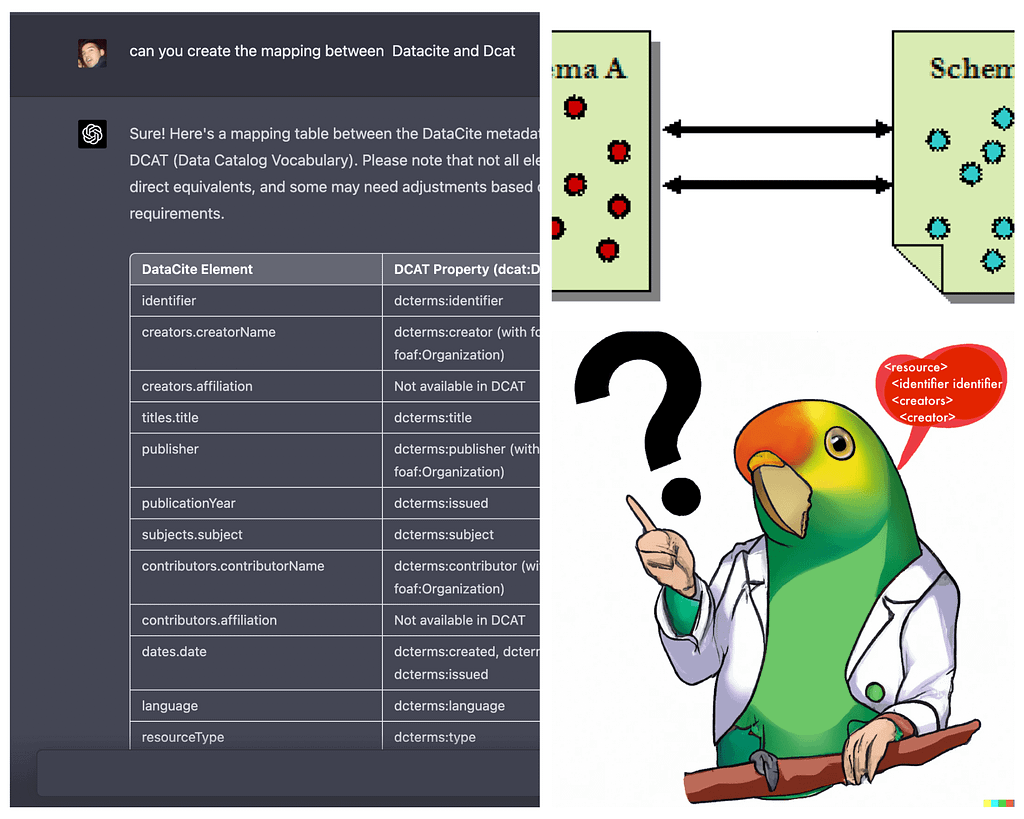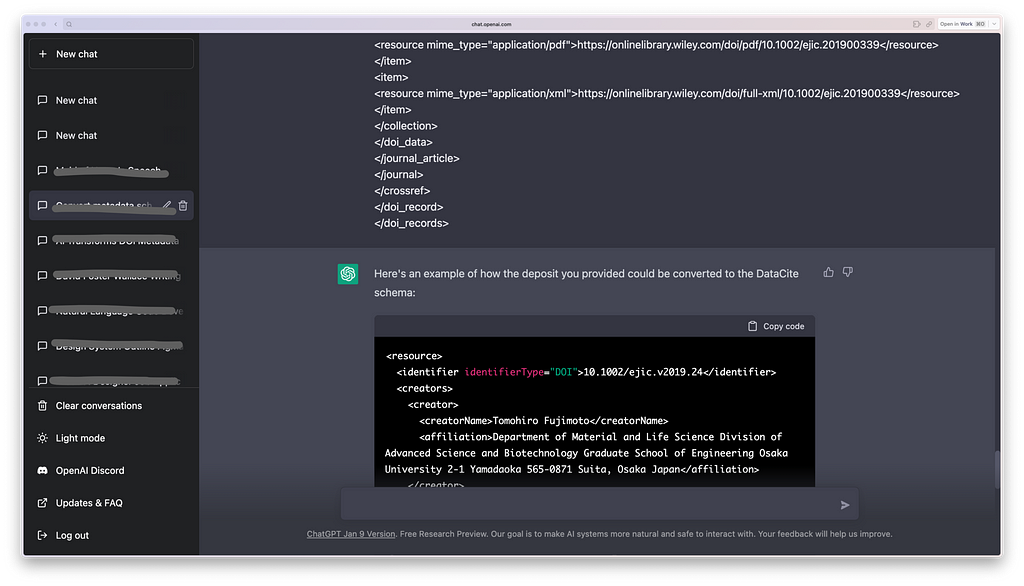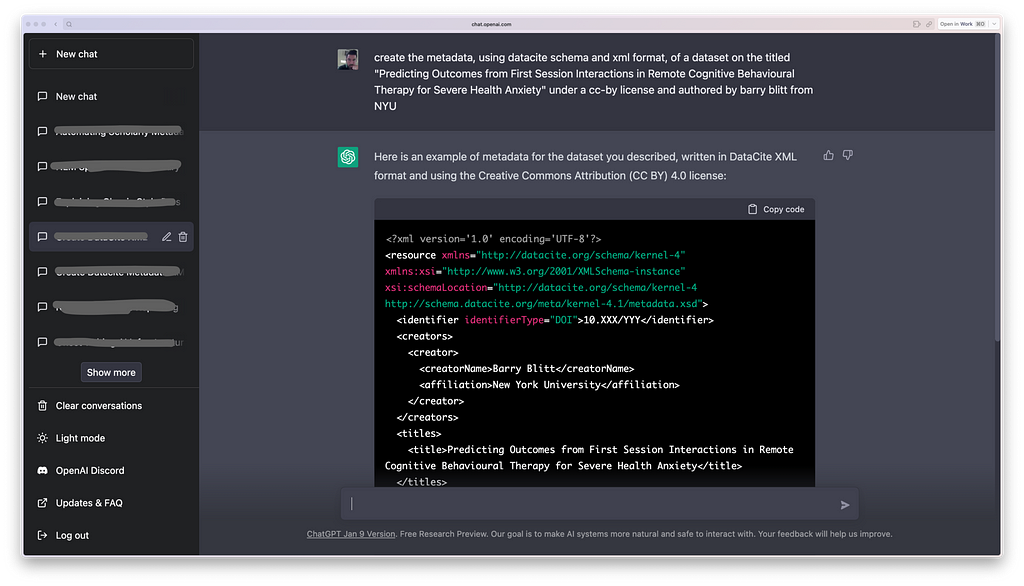"Com um acervo de mais de 1,4 milhão de produções acadêmicas, a base de dados da Capes foi a fonte primária para a criação de 100 GPTs, conforme a seguir: 91 GPTs especializados em cada área do conhecimento; 8 GPTs que abrangem as grandes áreas do conhecimento e 1 GPT que considera todas as áreas." conheça do trabalho do Dr. João Lima, Analista de Informática Legislativa no Senado Federal.
Rogue Scholar Posts

Bands have been known to declare “No Synths!” on their albums. This statement was a badge of pride indicating that the artists hadn’t used any modern trickery in their recordings. Today, the growing use of artificial intelligence (AI) and large language models (LLMs) in science has created a similar scenario. Advocates argue that these tools improve every aspect of science, including the publication process.

On September 2023, OpenAI announced that ChatGPT Plus would be enhanced in three ways 1. It would allow you to speak directly with GPT and it would also be able to reply in voice 2. It would be able to create images using DALL-E 3, OpenAI's image generation model 3. It would be able to accept image inputs Since I finally gained access to these features, I will briefly review them with my thoughts on how impactful they might be for

I've been a subscriber of OpenAI's ChatGPT plus for a while though I have been struggling to justify it to myself for a while until recently.

Hi everyone, greetings to one of our summer editions! Whether you're on vacation, just back, or about to head off, I've got some interesting content to share with you.

This is Ralph. How tall is Ralph? It seems simple, you could just hold a ruler up to the screen. But when you look at the ruler and use it to measure Ralph, are you actually measuring Ralph , or are you measuring the ruler and using that as a proxy ? How accurate is your measurement? Are you including fur in the measurement? What if Ralph were to stand on his hind legs, like a mighty bear — how tall would he be then?

Picture, if you will, the labyrinthine world of academic information management, where metadata schema mapping serves as a vital underpinning for the exchange and intermingling of data across diverse platforms and systems. This arena has long been dominated by the venerable metadata schema crosswalk, which, though serviceable, has begun to show its age.

Large language models have been making waves in artificial intelligence for a good reason. These models have the ability to understand and generate human language, which has far-reaching implications for the future of technology. One area where these models have a significant impact is in the realm of software development.

Academic Publishing web forms meet your demise: The unstoppable rise of large language models (ChatGPT) As we enter the age of artificial intelligence, it’s worth considering how large language models will revolutionize how we interact with websites and applications. Web forms have been the dominant method for users to input data and complete tasks online for decades.

There’s a quote attributed to Ernest Rutherford: “That which is not measurable is not science. That which is not physics is stamp collecting”. I think his point was that a lot of scientific work is just documenting things. In Rutherford’s day, there was a lot of exciting new creative work happening in physics, so perhaps physics seemed special to him.